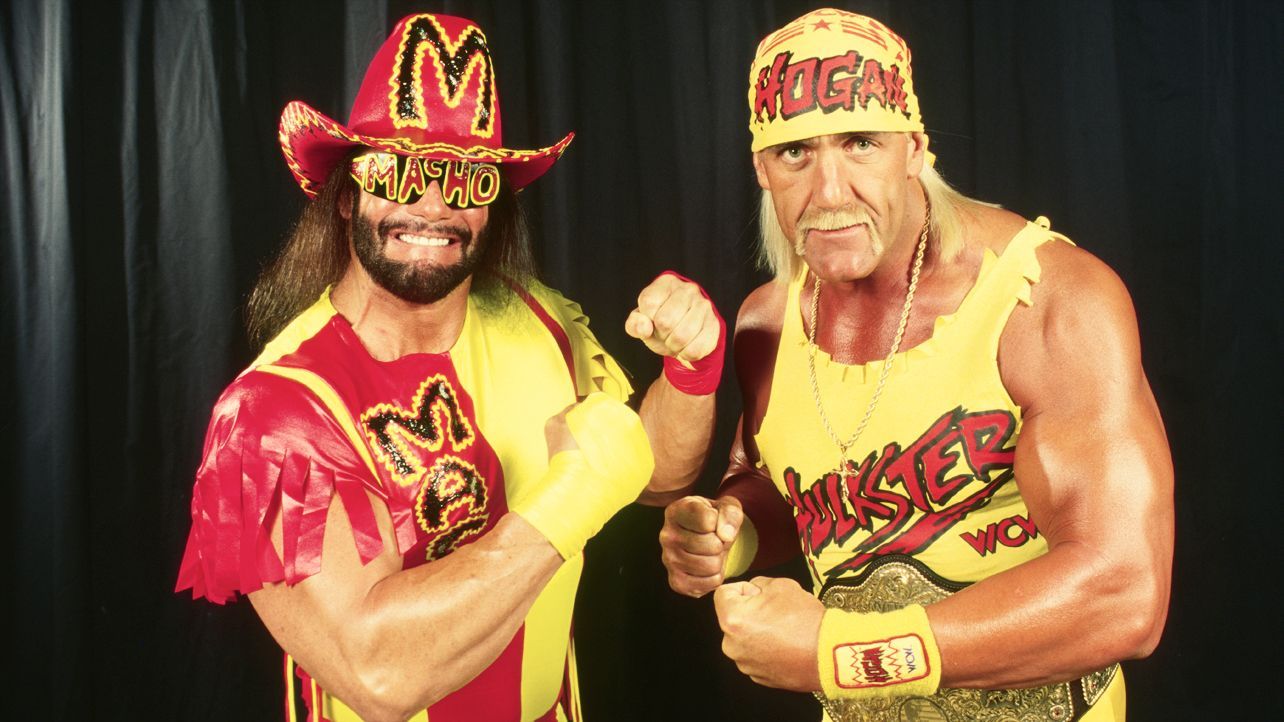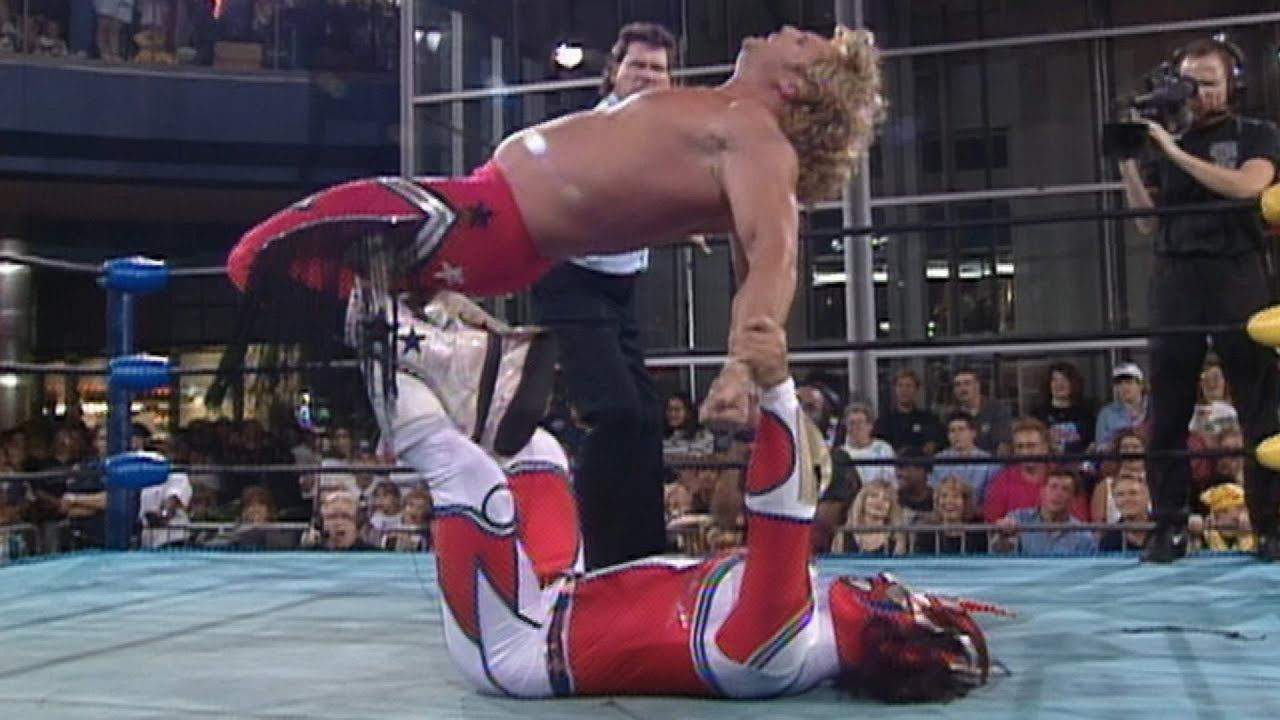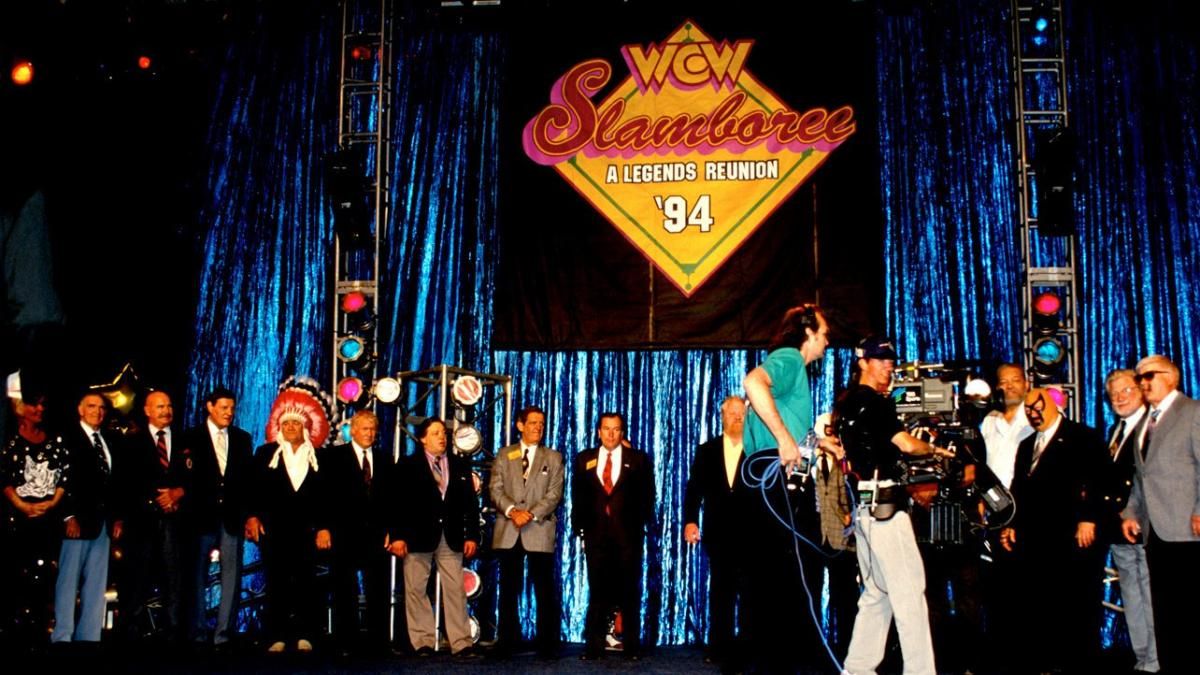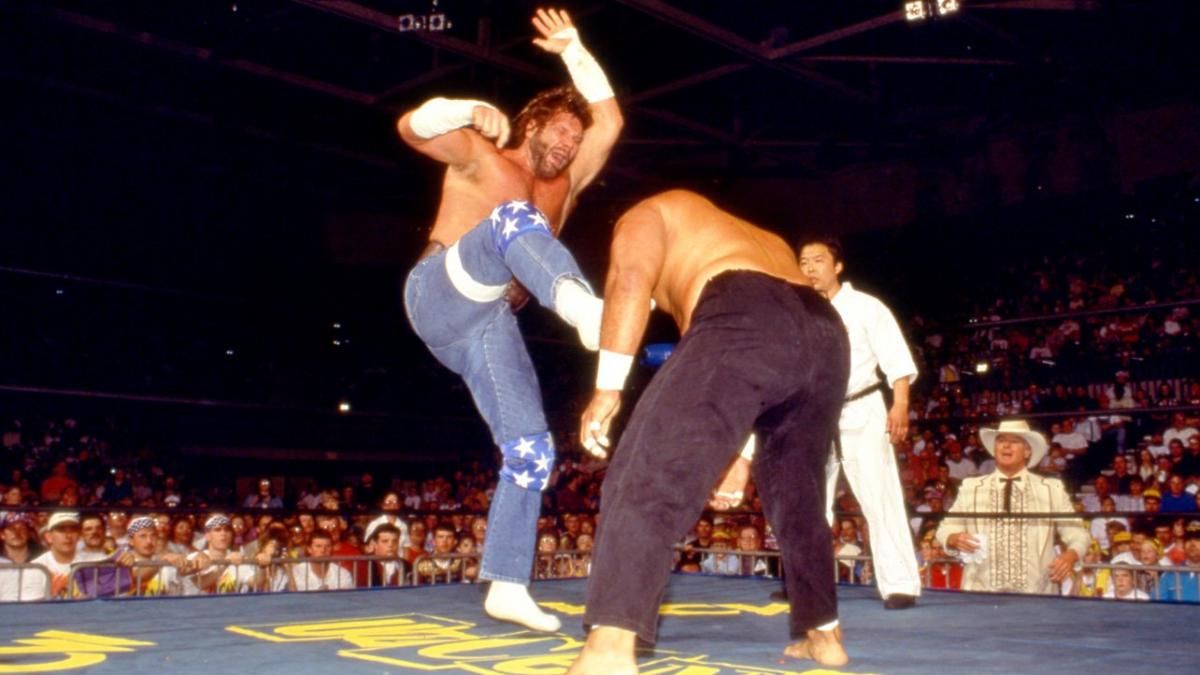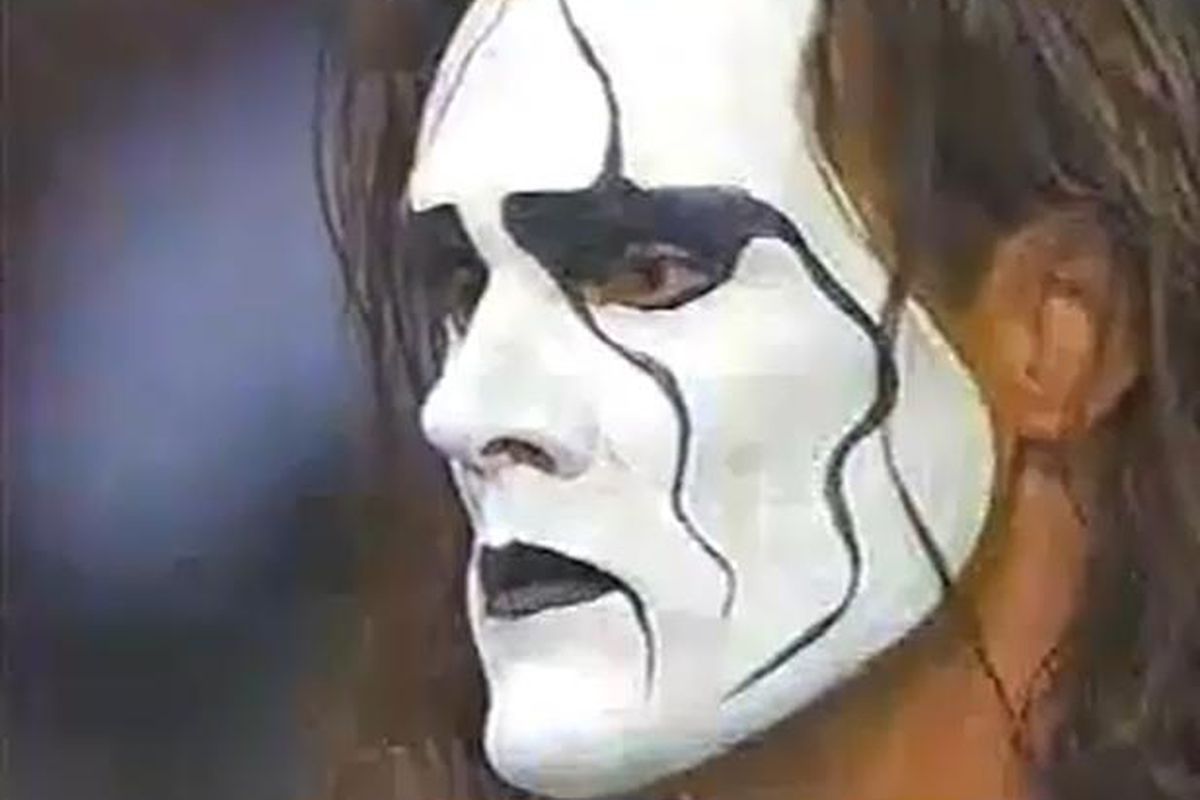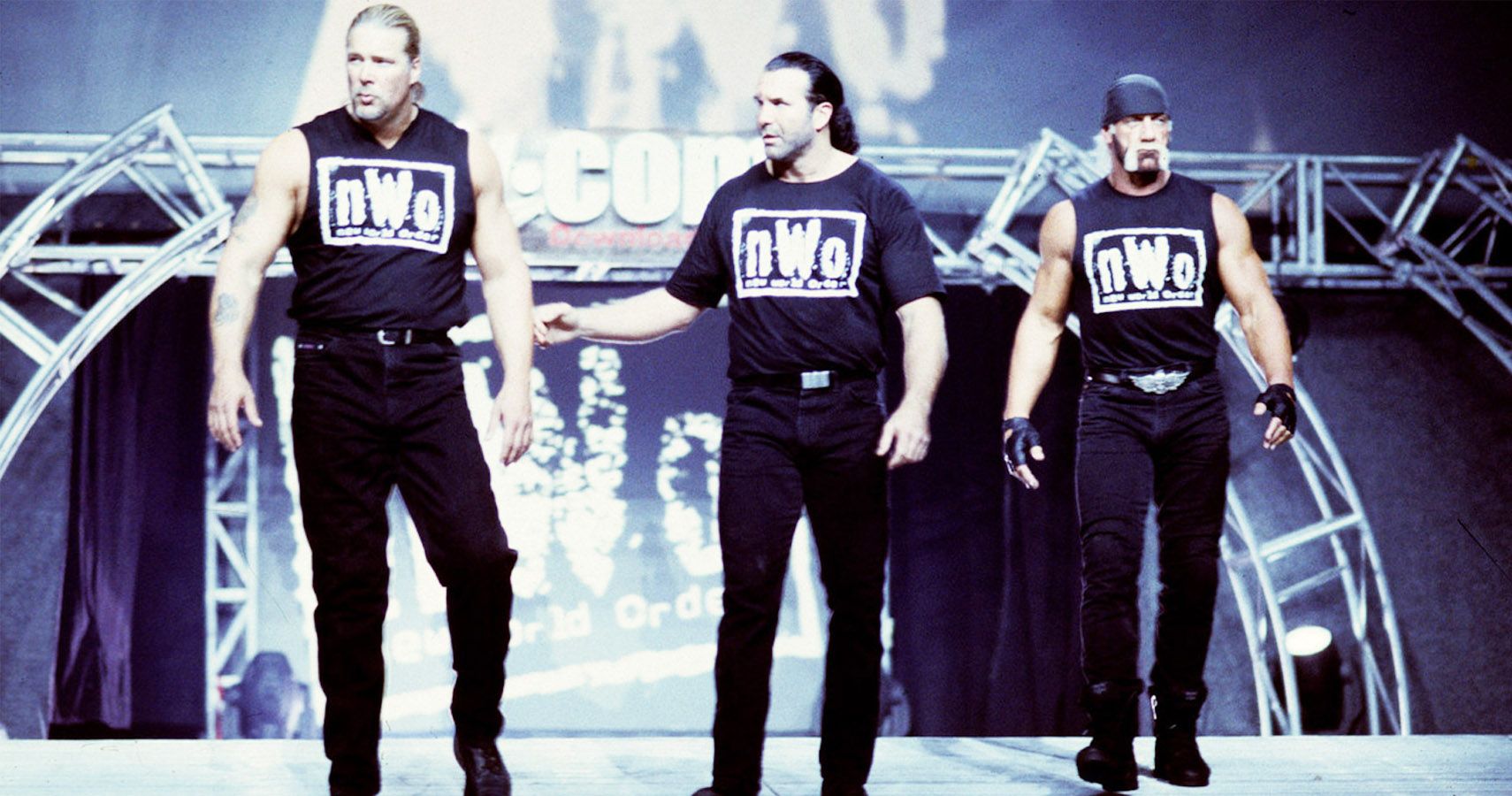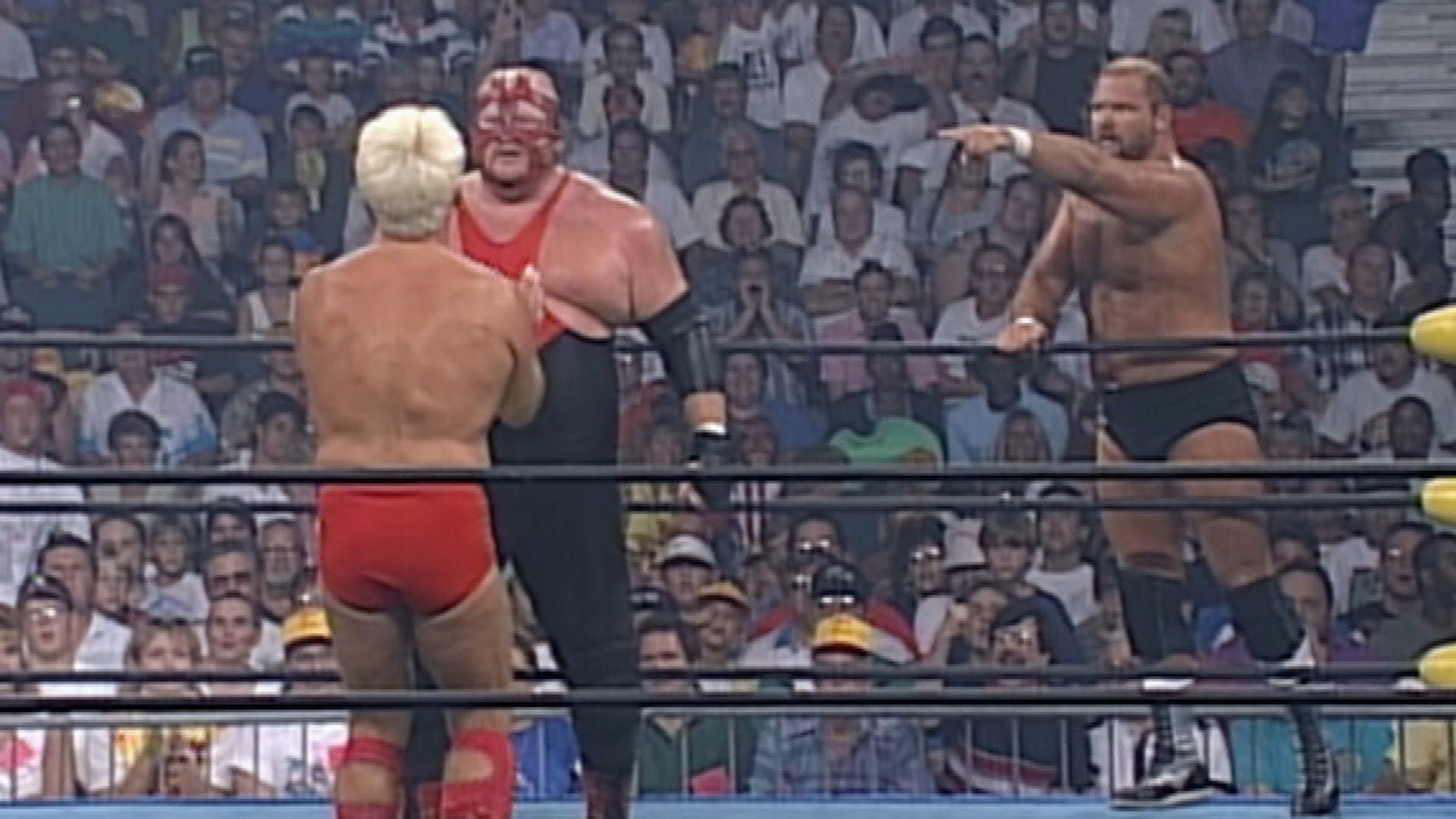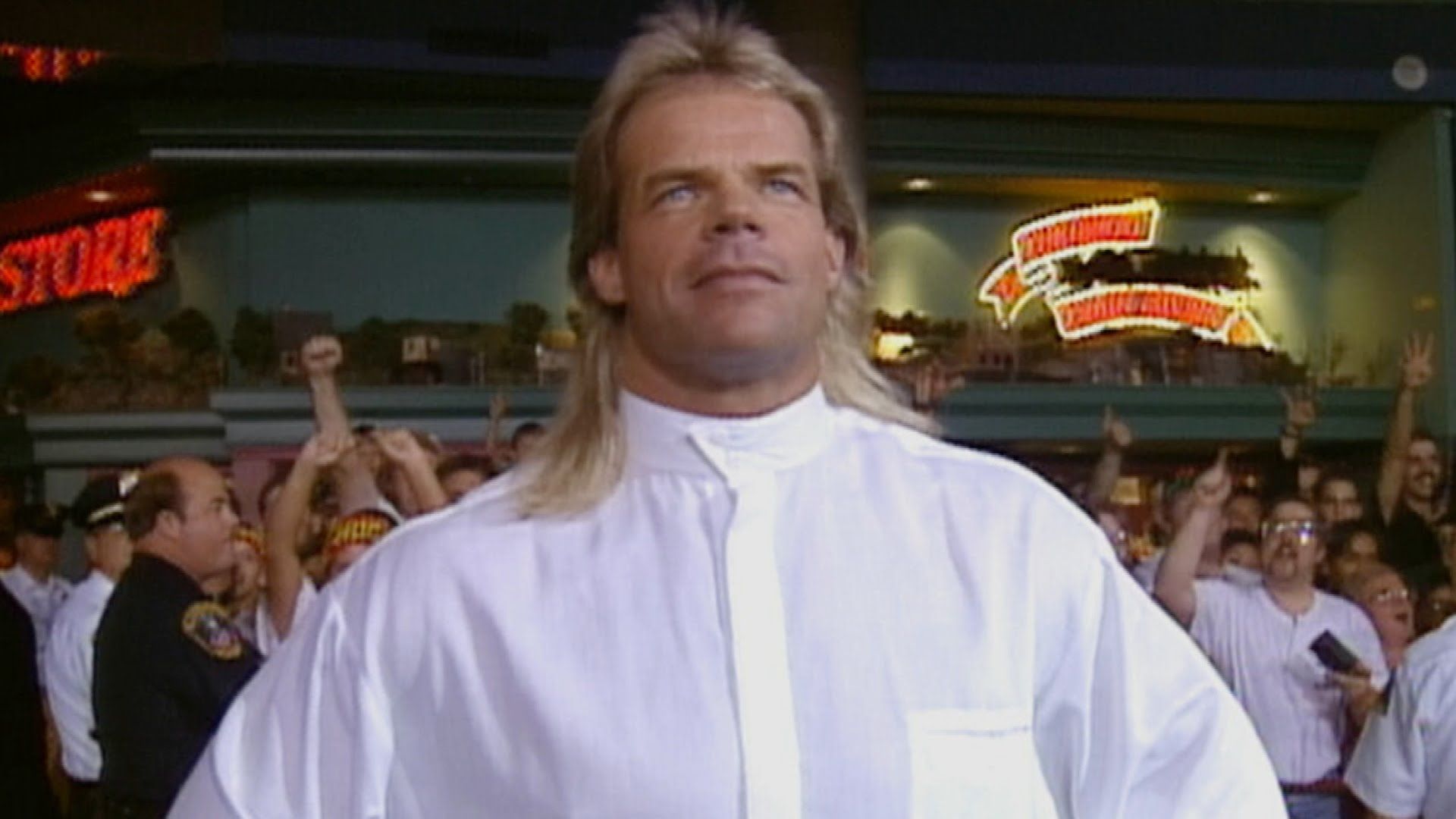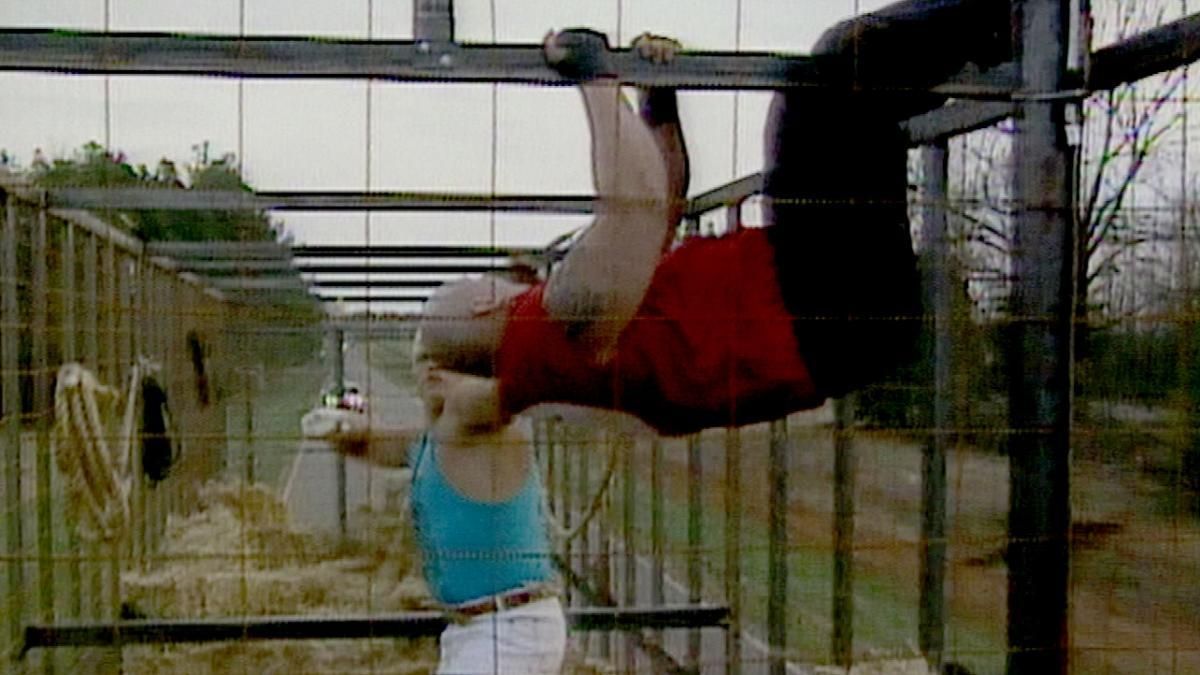AEW will hold its first officially-branded show soon, and rumors abound about the new company potentially landing a television deal with a major broadcast company like Turner. Long before Turner came into the picture, though, pundits were pointing out potential similarities between AEW and WCW, with the former cast as a modern-day competitor to Vince McMahon and WWE. The reveal of Tony Khan as a billionaire backer, with the son of Dusty Rhodes at the helm, makes the comparisons all the more obvious.
WCW wasn’t always successful, though, as evidenced by them eventually losing the Monday Night Ward. This article takes a look at five good ideas from WCW that could benefit AEW now and five points to avoid.
10 10. Take From WCW: International Flavor
In his 83 Weeks podcast, Eric Bischoff has often said that WCW strived to project an international identity. This strategy included partnering with Japanese and Mexican promotions for talent exchanges, running events like Collision in Korea, and pushing talent like Lord Steven Regal and Dave Finlay.
AEW could be well-served to follow in this tradition. Many of WWE’s stars coming in from abroad, like Shinsuke Nakamura, Finn Balor, and Andrade, have met inconsistent booking in WWE. This could be an area in which AEW excels by pushing talents like The Lucha Bros. and stars that Kenny Omega and Chris Jericho might lure from New Japan. Featuring different styles and culture could not only make AEW more appealing but give them a leg up on recruiting top talent from abroad.
9 9. Avoid: Hulk Hogan
It’s understandable why WCW signed Hulk Hogan, as his star power helped to legitimize WCW in the eyes of fans and business partners alike. In the end, Hogan was probably not only a good acquisition for WCW, but an essential one in terms of the company ever legitimately competing with—let alone temporarily enjoying an advantage over—WWE.
Two decades later, Hogan is still a big name. His checkered past with how he influenced and managed matters in WCW and Impact makes him less than desirable, though. That’s not to mention the scandal of the recording of him using racist epithets. For all his notoriety, Hogan would be more of a detriment than a boon to AEW.
8 8. Take From WCW: Honoring Tradition
Long before WWE had annual Hall of Fame induction ceremonies, WCW had more of a habit of honoring the tradition of the National Wrestling Alliance and pro wrestling at large. That included more veteran presences on the roster, use of the big gold belt, and even the Slamboree PPV that was originally explicitly dedicated to celebrating past stars.
AEW is a new promotion and shouldn’t fixate on the past. A more old-school storytelling sensibility and perhaps involving the NWA Worlds Heavyweight Championship—as happened at All In—does have potential, however, in distinguishing AEW from WCW.
7 7. Avoid: Monthly PPV
WCW introduced monthly PPV as a way of increasing revenue, and this actually seemed to influence larger wrestling culture, as WWE followed suit.
Times have changed. WWE still holds special events more or less monthly but uses its network as the primary mode to broadcast them. As a fledgling promotion, AEW needs to be more careful about how much it asks of its fans in terms of paying for the product, be it via traditional PPV, a streaming service, or its own broadcast platform. Spacing out PPVs with good television in between is a surer way to build the brand.
6 6. Take From WCW: Long Story Arcs
Though WCW’s critics will knock them for excessive swerves and heel and face turns, at its best, the company did pull off some very good long-term storytelling. The Sting vs. New World Order angle that stretched from 1996 to early 1998 stands out in particular. Even though the blow off was largely disappointing, the journey there made for some all-time great wrestling television.
Especially early on, when AEW faces the double-edged sword of not having TV as a weekly resource, but also not having the pressure of putting out content so regularly, building stories that can grow organically and interestingly over time will be interesting. WWE hasn’t been all that successful in telling long stories in recent years, and this would be a great area in which AEW could distinguish itself.
5 5. Avoid: The Super Heel Stable
The New World Order presented one of the definitive double-edged swords on professional wrestling. It got hot and was one of the most important pieces of creative in making WCW competitive with WWE. On the flip side, it ran way too long and dominated way too much WCW airtime as the years went on.
We’ve seen Impact Wrestling follow similar templates for better and for worse, including runs with The Main Event Mafia, Immortal, and Aces and Eights on top. While there’s a time and place for a heel super group, relying on this storyline too much feels dated and has offered increasingly-diminished returns. AEW is best off steering clear of this dynamic, at least in its early years.
4 4. Take From WCW: Clash Of The Champions
From the late 1980s through the 1990s, WCW ran recurring free TV specials under the Clash of the Champions brand. These live shows contrasted from the regular TV shows that, per the style of the day, featured mostly squash matches and proper PPVs. Accordingly, they fell somewhere in-between, rarely featuring the biggest blow off matches, but often pitting stars against stars in matches of some consequence.
The Clash format fell out of favor during the Monday Night Wars, when every TV show featured competitive bouts and, often as not, pay-per-view caliber matches. In today’s marketplace, free TV specials like this could offer a fun diversion from normal wrestling TV and PPV, with important shows accessible to a cable TV audience.
3 3. Avoid: Over-Dependence On Past Stars
WCW tends to get a bad rep—not for creating its own stars, but, rather, for poaching big names from WWE or from the NWA tradition. That’s not entirely fair when one considers guys like Booker T, Scott Steiner, Jeff Jarrett, Diamond Dallas Page, and Goldberg did become main event stars, for better or for worse, under the WCW banner.
However, given how heavily-featured guys like Hulk Hogan, Randy Savage, and Ric Flair were over a period of years, and arguably past their primes, there is some merit to the argument. That’s especially because eventual big-time stars for WWE like Steve Austin, Mick Foley, Chris Jericho, and Eddie Guerrero were mostly squandered in the WCW system.
Right now, AEW has buzz as a prospective alternative to WWE. It will be important for them not to rest on their laurels when it comes to featuring existing big names over promoting fresher, younger talent.
2 2. Take from WCW: Must-See Television
One of the calling cards of the Monday Night War was free wrestling television shows went from almost exclusively featuring squash matches to boost PPV and the house show markets to featuring hot angles and competitive matches between stars on a weekly basis. WWE still upholds some of these principles—at least relative to the pre-War era. There’s little arguing that the business is close to as hot as it was in the late 1990s or early 2000s, though.
If AEW can channel WCW’s style of electric television that it produced at its best, it will bode very well with bringing back wrestling fans of yesteryear and satisfying fans who’ve tired of the WWE product.
1 1. Avoid: Too Many Gimmick Matches
Looking back at certain periods of WCW programming, it can be startling to see just how many gimmick matches the company would put on in a single night. Matches with no DQ rules or oddball stipulations have their place, but the more often they come into play, the less these gimmicks tend to mean.
In the contemporary wrestling world, going gimmick-match-free can feel like a bore. However, AEW would be well-advised not to repeat the mistake of flooding the gimmick match market, saving cages, special consequences, and alternative rules for feuds and situations that truly demand them.

